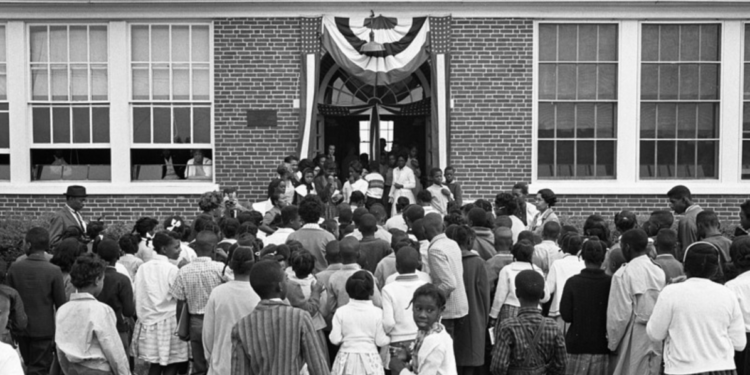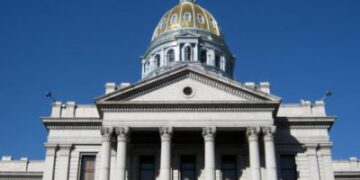March 21, 2025 Story by: Editor
Carlton Terry was just twelve years old when Prince Edward County shut down its schools for Black students.
Reflecting on that time, he recalled, “All I knew was that I wasn’t in school, and I knew the reason why. I realized that the legal system was not working, at least not working for me. I remember sitting at home, watching Amos ’n’ Andy on TV, shell-shocked. I read the newspaper every day to see what would happen.” After a year of waiting at home with no resolution in sight, his family, like many other Black families, decided to accept the Quakers’ offer to send him to a school in Massachusetts. Looking back, he said, “I only lost one year, and I feel like I was hurt. But imagine what it must be like for those who lost four or five years, or never went back.”
By the spring of 1960, a federal judge once again ruled that Virginia could no longer use taxpayer money to maintain a school system exclusively for white children. However, district officials initially disregarded the court order.
White administrators also seized supplies from locked public schools, taking textbooks, desks, and even goalposts for their private, whites-only schools. Local businessman Robert Taylor remarked that they took “everything but the clocks.” Carlton Terry, who had to relocate to Massachusetts for his education, later told The Washington Post that he “eventually got to the point where I hated whites.”
During the 1960s, the North saw rising anti-integration activism, which played a significant role in shaping discussions around race, segregation, and education. For years, the federal government ignored the ongoing Massive Resistance movement.
President Dwight Eisenhower, in office from 1953 to 1961, was skeptical of the Brown ruling, expressing doubt that white Americans would comply. “I do not believe that prejudices,” he stated, “will succumb to compulsion,” adding that imposing federal law on states “would set back the cause of race relations for a long, long time.” Despite repeated pleas, Eisenhower’s administration was slow to intervene in the crisis that was robbing Black children of their education.
It wasn’t until December 1962, three years into the standoff, that the Justice Department joined the NAACP in appealing the Prince Edward case. By this time, a new administration was in place, with Robert F. Kennedy serving as Attorney General. Kennedy filed a legal brief asserting that despite states’ rights arguments, federal courts had the authority to require Virginia to impose taxes to fund desegregated public schools.
In February 1963, President John F. Kennedy addressed Congress on civil rights, urging a swift resolution and promising aid for remedial education once the schools reopened. He pledged to “fulfill the constitutional objective of an equal, non-segregated educational opportunity for all children.” Reflecting on the crisis, Robert Kennedy remarked on the centennial of the Emancipation Proclamation, “with as much sadness as irony that outside of Africa south of the Sahara, the only places on earth known not to provide free public education are Communist China, North Vietnam, Sarawak [Borneo], British Honduras—and Prince Edward County.”
Determined to take action, the Kennedy administration collaborated with state and private organizers to establish the Prince Edward County Free School Association. The group rented three closed public schools and reopened them for Black students during the 1963–64 school year. Since local officials refused to fund or integrate the schools, external support poured in from foundations, businesses, and individuals nationwide, raising $1 million to provide Black students with accredited education.
Neil Sullivan, a principal from Long Island, took a leave of absence to oversee the newly formed Prince Edward County Free School. He recruited a multiracial teaching staff from across the country. In the spring of 1964, Robert Kennedy and his wife, Ethel, visited Farmville to assess the schools. Just two weeks later—ten years after the Brown decision—the U.S. Supreme Court ordered Prince Edward County to reopen and desegregate its schools, finally forcing compliance.
Despite the ruling, Prince Edward Academy remained the only segregation academy still operating in the state. School administrators found ways to divert taxpayer money meant for public schools. The summer before the schools were set to reopen, officials allocated $180,000 for Black children’s education—only to simultaneously approve grants of the same amount for white parents enrolling their children in the private academy.
Expecting a federal court injunction, the school board instructed 700 white parents to line up at 2 a.m. to collect their last-minute tuition grants. That morning, the board distributed $250 checks on a first-come, first-served basis until the $180,000 was depleted. Parents rushed to nearby banks, which had opened early to ensure the funds were deposited before a court could intervene. However, justice prevailed two years later when a federal appeals court ruled that the six-county officials responsible for the scheme had to personally repay the funds.
On September 16, 1963, four years after public schools were shut down, Shirley Davidson finally stepped onto a school bus. She was among 1,520 students—nearly all of them Black—who enrolled in the Free School system supported by the Kennedy administration. However, due to the white officials’ financial maneuvers, these schools remained underfunded despite their existence.
During the years of school closures, Shirley’s mother, Hazel, had tutored her in reading and math, allowing her to start school well-prepared. Unfortunately, many other students did not have the same advantage. Neil Sullivan declared in the press, “our first task will be a mass attack on reading skills,” but privately admitted, “four years’ loss will never be made up entirely.” Sylvia Eanes, who had been in third grade when schools closed, was placed in eighth grade upon reopening as though she had been continuously enrolled. She recalled, “The teachers just pushed us through, wanted us out.”
After graduation, Sylvia doubted her spelling skills enough to prevent her from pursuing her dream of becoming a licensed practical nurse. Instead, she settled for a job in a local food-processing factory. Her older brother, McCarthy, had driven a school bus for white children during the closures. At 21, he returned to school, graduated at 22, and was promptly drafted to Vietnam. Speaking to The Washington Post, he reflected, “My country called me to fight in Vietnam, but wouldn’t let me go to school.” It wasn’t until 1978 that the final district that had used public funds to support private white schools ceased doing so.
In the 1940s and 1950s, psychologists, lawyers, and civil rights leaders assured Americans that integration would be the key to improving economic opportunities for Black citizens. However, few warned of the fierce backlash it would provoke. In the decade following Brown, Black Americans saw glimpses of hope: the Montgomery Bus Boycott in 1955 introduced Martin Luther King Jr. and Rosa Parks to the world, and the Civil Rights Act of 1964 struck down Jim Crow laws. But by 1968, government reports revealed failing urban school systems that left Black youth disillusioned and ready to rebel.
As white families fled to the suburbs, inner-city schools were left understaffed and underfunded, with Black students bearing the consequences. Northern districts, courts, and politicians argued that Brown didn’t apply to them, as their segregation was due to housing policies rather than deliberate school policies. Civil rights groups, including the NAACP, fought for integration in cities like Detroit, Cincinnati, and Boston, but resistance was fierce.
Although the South is often the focus of discussions on segregation, white resistance to integration in Northern cities was just as intense. In places like New York, many opposed even modest integration efforts. In 1964, the New York City Board of Education proposed rezoning and busing 40,000 students—out of one million—to integrate schools. However, the backlash was immediate.
The fight for educational equality was not limited to the South, and as history shows, racism in education persisted in various forms across the country.
Source: Literary Hub

















